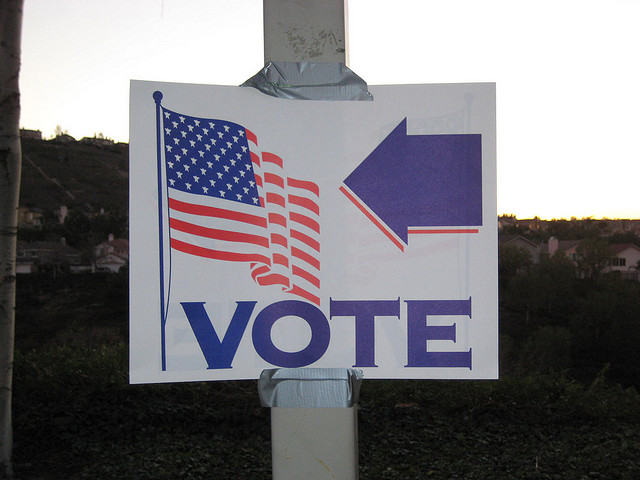There is a database housed in Arkansas with the names of American citizens in it … that is, if they live in one of the 28 states participating in the Interstate Voter Registration Crosscheck Program. It’s one of the growing components of an aggressive drive across the U.S. by Republicans to stop many Americans from voting.
Early voting has already begun in many states in the 2014 U.S. midterm elections. Control of the U.S. Senate hangs in the balance, as do many crucial governorships, congressional races and ballot initiatives. One question looming over this election is just how significant will be the impact of the wholesale, organized disenfranchisement of eligible voters.
I spoke with Dolores Internicola in Fort Lauderdale, Fla., ground zero for the voter-purge efforts of embattled Republican Gov. Rick Scott. She lost her husband, Bill, recently. He was in the news in 2012, when, at the age of 91, Bill received an official notice in the mail that his citizenship was in question, and he would have to prove it or be kicked off the voter rolls. As a World War II veteran who fought in the Battle of the Bulge, the native New Yorker was upset to hear that he couldn’t participate in the vote that he helped defend against Nazi Germany. “It was terrible,” his widow recalled. Bill did get to vote in the 2012 elections, but millions are now threatened with similar, arbitrary disenfranchisement this year.
Investigative journalist Greg Palast, along with documentary filmmaker Richard Rowley, crisscrossed the country, documenting the impact of the Crosscheck Program. His critical investigative reporting of the now-legendary electoral debacle in Florida in 2000 helped expose how Florida’s then-Secretary of State Katherine Harris oversaw massive, erroneous voter purges there, giving the presidency to George W. Bush in what remains the most controversial presidential election in U.S. history.
“Now, it’s a decade and a half later, and I’m hearing the cry of ‘voter fraud. There’s a million people committing voter fraud.’ Is there really this big crime wave?” Palast asks in his two-part special on alleged “double voting” produced for Al-Jazeera America.
The Crosscheck system described by Palast started with Kansas Republican Secretary of State Kris Kobach. It takes electronic records of voters from participating states, collects them in a centralized database in Arkansas and attempts to match individual voters who might have voted in more than one state. This “double voting” was responsible, according to conservative commentator Dick Morris, for 1 million fraudulent votes for Barack Obama, allowing him to “steal the election” in 2012. Yet, as Palast reports, there has not been a single successful prosecution of electoral fraud as a result of the Crosscheck system. Rather, Crosscheck has led to massive purges of eligible voters from the rolls, often based on sloppy data.
Purging of the voter rolls is just one way that Republicans are working to limit the vote. Key court decisions in recent weeks have all but guaranteed that tens of thousands of voters will be denied access to their right to vote. Texas just passed a highly restrictive photo-identification law. The U.S. Supreme Court decided not to rule on the substance of it until after the election in order to avoid confusion. In her dissent, Justice Ruth Bader Ginsburg wrote, “The greatest threat to public confidence in elections in this case is the prospect of enforcing a purposefully discriminatory law, one that likely imposes an unconstitutional poll tax and risks denying the right to vote to hundreds of thousands of eligible voters.”
Restrictive voter identification and other obstructions have been allowed to move forward as well in Wisconsin and North Carolina. It has been long acknowledged that photo-ID requirements disproportionately impact poor people and people of colour, two groups that tend to vote for the Democratic Party.
In the fall of 1980, Paul Weyrich, a conservative activist who went on to found such right-wing institutions as The Heritage Foundation, the Moral Majority and the American Legislative Exchange Council, addressed a conference in Dallas. “I don’t want everybody to vote,” he said. “Elections are not won by a majority of people, they never have been from the beginning of our country and they are not now. As a matter of fact, our leverage in the elections quite candidly goes up as the voting populace goes down.” Weyrich’s wish back in 1980 has become a grim reality in 2014. The right to vote is sacred, and its protection is the responsibility of us all.
Denis Moynihan contributed research to this column.
Amy Goodman is the host of Democracy Now!, a daily international TV/radio news hour airing on more than 1,200 stations in North America. She is the co-author of The Silenced Majority, a New York Times bestseller.



